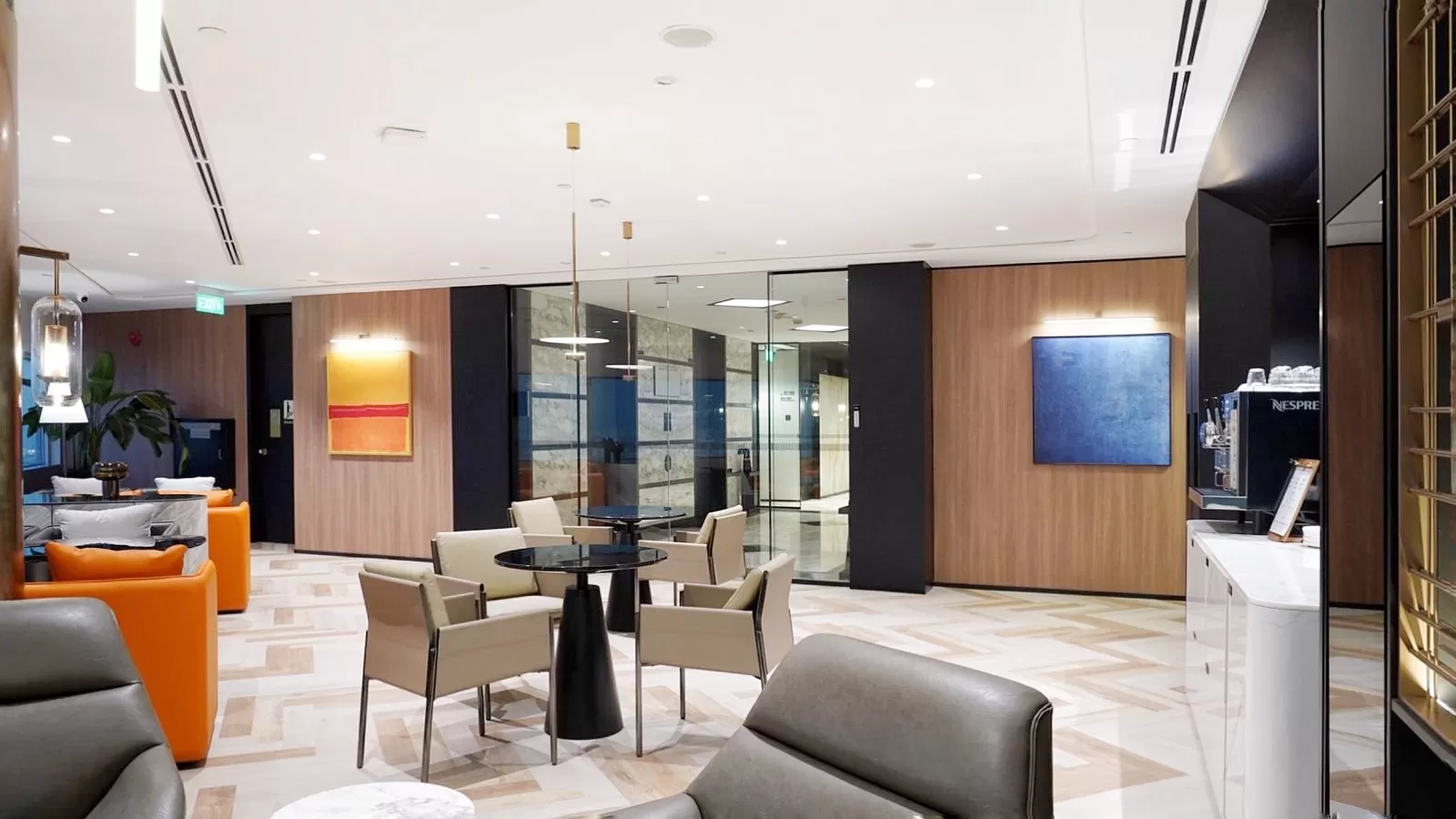Address: Level 36, The Gateway East,152 Beach Road, Singapore, 189721
E-mail: sales@kcentre.net
Contact us on WhatsApp
+65 90191208

When your business is ready to settle into a physical space, the big question arises: Should you lease or buy your office space? It's not just about cost — it's about flexibility, growth plans, stability, and even long-term vision.
In this article, we'll walk you through the pros and cons of leasing versus buying an office, the key differences, and how to decide what's right for your company in 2025.

Let's break it down
Leasing: You rent the space from a landlord, typically with a contract ranging from 1 to 5 years or more.
Buying: You purchase the property outright or via a mortgage and become the legal owner.
Simple on the surface, right? But the implications are big — financially and operationally.
Leasing is the more common option, especially for small to mid-sized businesses and startups. Here's why:
Lower Upfront Costs
No need for a big down payment — just a security deposit and maybe a few months' rent in advance.
Flexibility to Relocate or Scale
Lease terms allow businesses to move to a bigger (or smaller) office as they grow or pivot.
Less Maintenance Responsibility
Landlords or building managers usually handle maintenance, repairs, and utilities (in serviced offices or coworking setups).
Access to Prime Locations
Leasing can give you access to high-demand areas like Singapore's CBD, where buying is either impossible or unaffordable.
There are trade-offs to the convenience of leasing Office Space:
No Equity
Your monthly rent builds no ownership — it's an ongoing expense.
Rent Increases
Leases may come with rent hikes or renewal uncertainty once the contract ends.
Limited Control
Renovations or customizations are subject to the landlord's approval.
If you're thinking long-term, buying may be a strong move. Here's why:
Builds Equity
Every payment goes toward owning an asset — not just paying rent.
Fixed Costs
With a mortgage, your payments are more predictable over time than lease increases.
Full Control
You can design, renovate, or expand the space as needed — no landlord approval required.
Rental Income Potential
If you have extra space, you can lease it out to other businesses for passive income.
Of course, buying comes with its challenges too:
High Upfront Costs
Expect to pay a 20–30% down payment, plus legal fees, stamp duty, and renovation costs.
Less Flexibility
If your team grows rapidly or you want to relocate, selling the office isn't a quick fix.
Maintenance Responsibility
You're on the hook for all maintenance, property taxes, and insurance.
Let's take an example: You're eyeing a 1,000 sq ft office in a city fringe area.
| Factor | Leasing | Buying |
|---|---|---|
| Upfront Cost | 2–3 months' rent deposit | 20–30% down payment + fees |
| Monthly Payment | $6,000 – $8,000 | ~$4,000 mortgage (depending on loan) |
| Flexibility | High | Low |
| Long-Term Cost Benefit | No equity | Property appreciation + equity |
| Responsibility | Shared with landlord | Fully yours |
Note: Numbers vary depending on location and building grade.
Leasing is often better for:
Startups and small businesses
Companies with uncertain or fast-changing space needs
Teams exploring new markets
Businesses wanting to stay agile with fewer liabilities
Buying might be better for:
Established companies with steady cash flow
Businesses that plan to stay long-term (7+ years)
Companies looking to invest in real estate assets
Those who want to customize their workspace fully
If you're not ready to commit to either leasing long-term or buying, serviced offices, coworking spaces, or shared offices offer great flexibility. You can:
Pay monthly without deposits or fit-out costs
Enjoy furnished spaces with all utilities
Upsize or downsize easily
They're especially popular in 2025 for SMEs and overseas companies entering Singapore.
Still unsure? Ask yourself:
How long do I plan to stay in this location?
What's my growth forecast in the next 3–5 years?
Do I have capital to invest in property without affecting operations?
Am I okay with landlord limitations or rent hikes?
Your answers will point you in the right direction.
There's no one-size-fits-all answer. Leasing gives you flexibility and lower risk, while buying offers control and long-term value. Consider your business stage, growth plans, and financial health. And remember — you can always start small with flexible spaces and revisit the buy-or-lease decision as your company evolves.